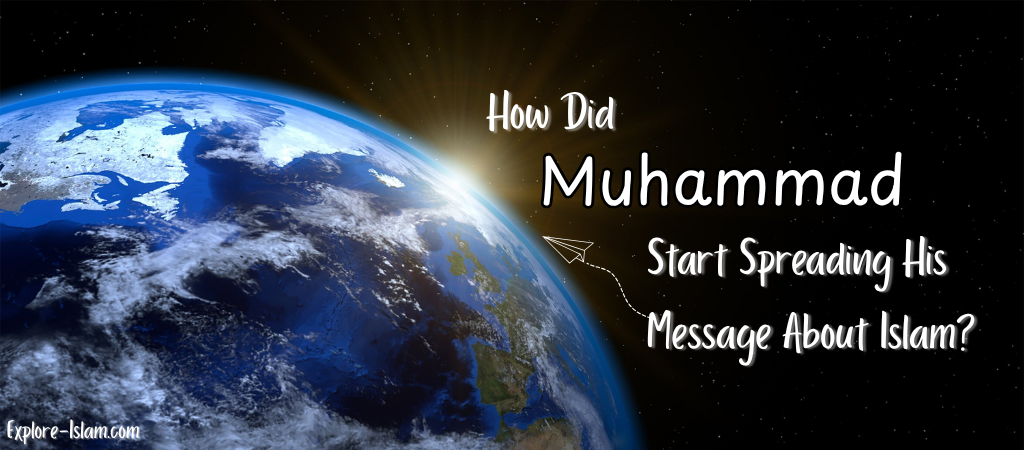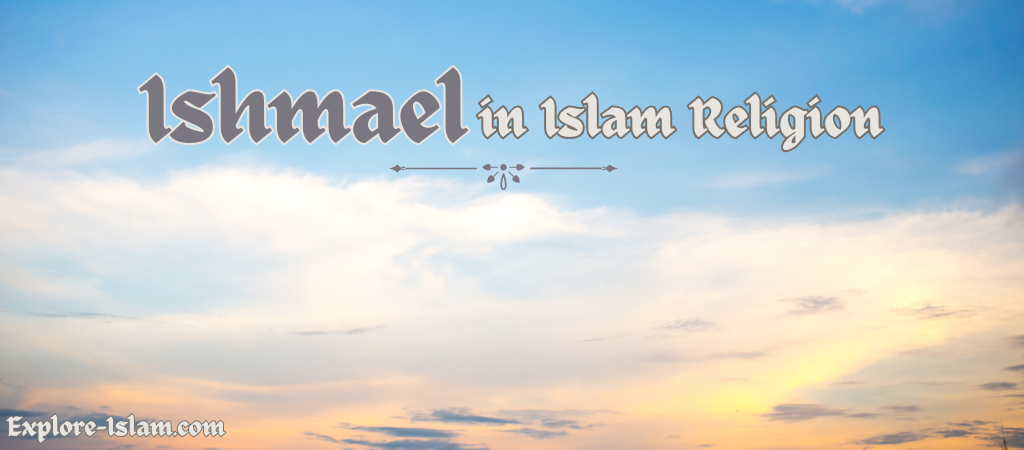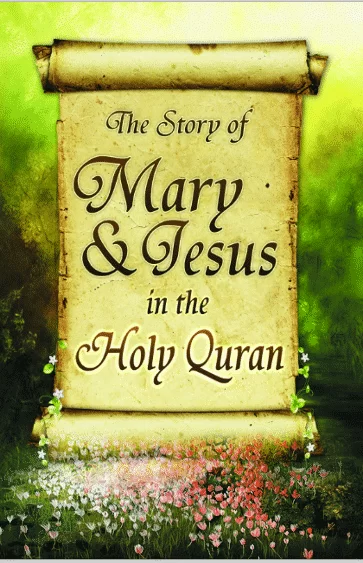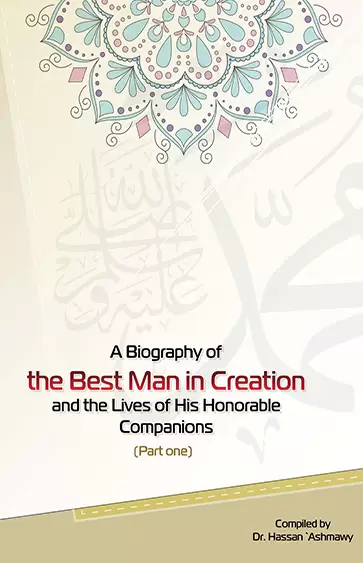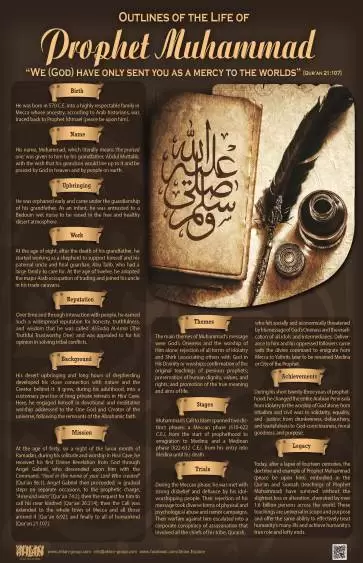We often hear that Prophet Abraham is a shared figure between Judaism, Christianity, and Islam, and this is absolutely true! Prophet Abraham stands as a very important figure in the history of faith, revered by billions.
We’ve already covered the Islamic beliefs about Prophet Abraham in detail in a past article. And we looked at Abraham in both Islam and Christianity in another piece. Now, let’s look at Abraham in Islam and Judaism from a fresh perspective, covering new ground.
Judaism and Islam both respect Prophet Ibrahim (PBUH) based on Quran and Torah. Prophet Ibrahim is a major figure for both religions! But, how they respect him and what they think his story means are different in some aspects.
Abraham’s High Status in the Quran and the Torah
The Torah and the Quran both regard Abraham with the utmost respect. Okay, let’s take a look at some important parts.
The Quran’s Praise of Abraham
Abraham in the Quran is counted among the “believers” and “doers of good”:
“Peace upon Abraham. Thus do We reward the doers of good. Indeed, he was of Our believing servants.”
And in the following verse the Quran describes him as a leader, a model of righteousness, a complete embodiment of faith, Grateful.
“Indeed, Abraham was a Ummah, Qanit to Allah, Hanif, and he was not of those who associate others with Allah. Grateful for His favors. Allah chose him and guided him to a straight path. And We gave him goodness in this world, and indeed, in the Hereafter he will be among the righteous.”
The Quran also says that Abraham was the “Friend of God,” which shows how close and special his relationship with Allah was.
“And Allah took Abraham as an intimate friend.”
The Torah Counts the Blessings Promised to Abraham
The biblical Book of Genesis recounts God’s instructions to Abraham, and the associated blessings that were promised.
“Go from your country, your people and your father’s household to the land I will show you. I will make you into a great nation, and I will bless you; I will make your name great, and you will be a blessing. I will bless those who bless you, and curse those who curse you; and all peoples on earth will be blessed through you.”
Furthermore, the Book of Genesis backs this up.
“As for me, this is my covenant with you: You will be the father of many nations. No longer will you be called Abram; your name will be Abraham, for I have made you a father of many nations. I will make you very fruitful; I will make nations of you, and kings will come from you.”
Abraham’s Lineage and Covenant in Judaism vs. Islam
In examining the connection to Abraham, a key divergence emerges in how Judaism and Islam define this relationship – lineage.
The Covenant to Abraham in Judaism is Forged in Blood and Seed
The Old Testament establishes a biological lineage as the bedrock of the Jewish connection to Abraham.
Genesis 12:7 recounts God’s promise,
“Unto thy seed will I give this land.”
This promise is repeatedly emphasized and narrowed down through Isaac and Jacob. Genesis 21:12 explicitly states God’s direction:
“for in Isaac shall thy seed be called.”
This is further reinforced in Genesis 28:13-14, where God appears to Jacob, saying,
“And, behold, the Lord stood above it, and said, I am the Lord God of Abraham thy father, and the God of Isaac: the land whereon thou liest, to thee will I give it, and to thy seed; And thy seed shall be as the dust of the earth, and thou shalt spread abroad to the west, and to the east, and to the north, and to the south: and in thee and in thy seed shall all the families of the earth be blessed.”
These verses, among many others, solidify the concept of a covenant inextricably linked to Abraham’s physical descendants through Isaac.
The inheritance of the covenant blessing, the promised land, and divine favor are all presented as flowing through this carefully delineated bloodline.
The Covenant to Abraham in Islam is to Spiritual Heirs of Abraham’s Monotheism
Islam recognizes that Arabs come from Abraham’s son, the Prophet Ismail (peace be upon him). But, it has a different take on what true inheritance really means.
As we mentioned above, the Quran honors Ibrahim as Ummah (a nation/leader) and a Hanif (upright monotheist) in Surah An-Nahl (16:120).
The focus is now on a spiritual connection, rather than a purely biological one.
The Quran in Surah Aal-Imran (3:68) states:
“Indeed, the most worthy of Abraham among people are those who followed him [in submission to Allah] and this prophet, and those who believe [in him]. And Allah is the protector of the believers.”
This verse talks about the three types of people who are closest to Abraham:
- “Those who followed him [in submission to Allah]”: This refers to the righteous individuals who lived during Abraham’s time and embraced his message of pure monotheism. They were his contemporaries who accepted his call to worship the One God.
- “This prophet”: This unambiguously refers to Prophet Muhammad (PBUH). The Quran presents Prophet Muhammad (PBUH) as the restorer of Abraham’s original, uncorrupted message. He is the final prophet in a line of prophets sent by Allah, all of whom preached the same core message of submission to the One God.
- “Those who believe [in his message]”: This refers to the followers of Prophet Muhammad (PBUH), the Muslims. They are considered the closest to Abraham because they adhere to the same fundamental principles of faith that he embodied: pure monotheism, submission to Allah’s will, and rejection of idolatry.
This perspective is further elaborated in Surah Al-Baqarah (2:135):
“They say, “Be Jews or Christians [so] you will be guided.” Say, “Rather, [we follow] the religion of Abraham, inclining toward truth, and he was not of those who associate others with Allah”
These verses highlight that Islam is the real continuation of Abraham’s belief in one God, going beyond bloodlines and ethnicity. The true followers are those who embrace the core principles of Tawhid (believing in one God) and Islam shown by Abraham, no matter what their ancestry is.
Portrayal of Abraham in Islam and Judaism
The depictions of Abraham’s personality and role differ between Jewish and Islamic religious texts.
Abraham in Judaism is the Father of the Israelite Nation
In the Old Testament, Abraham’s narrative is often framed within the context of the nascent Israelite nation.
Abraham in judaism is presented as the patriarch from whom the Israelites descend, and his actions are often interpreted through the lens of their national destiny.
Abraham’s journeys, his interactions with God, and even his flaws are all part of the formative story of the Israelite people.
Consider the narratives where Abraham is instructed to wage war (Genesis 14), or when he bargains with God regarding Sodom and Gomorrah (Genesis 18), or even the account of him sending Hagar and Ishmael away (Genesis 21). These stories, within the Old Testament context, contribute to shaping the identity and narrative of the Israelite nation, with Abraham as their founding father.
Exclusivity in Jewish Tradition:
So, Judaism maintains that only those descended from Abraham, Isaac, and Jacob can fully be part of the covenant. This is reflected in Jewish texts that emphasize a distinction between the “chosen people” (the descendants of Israel) and the rest of humanity. For example the Talmud states:
“You (the Jewish people) are called “Adam” (Man), and the other nations are not called “Adam” (Man).”
Also, the concept of the “holy seed” reinforces the idea that Jewish identity is tied to bloodline, not just faith.
Such views contribute to an ethnic or even genetic boundary around Abraham’s legacy in Judaism, one that cannot be crossed by those outside the lineage, regardless of faith or devotion. This perspective, consciously or not, cultivates exclusivity and ethnic-religious identity. It closes the door of Abrahamic affiliation to anyone not born into it, tying religious belonging to ancestry and biology, factors beyond human choice.
Abraham in Islam is the Model of Universal Faith
In Islam, Ibrahim’s portrayal transcends national or ethnic boundaries. He is presented as a universal exemplar of faith, a model for all humanity.
The Quran presents his unwavering faith in the face of adversity, his logical arguments against idolatry (Surah Al-Anbiya 21:51-70), his readiness to sacrifice his son (Surah As-Saffat 37:102-107), and his supplications for all mankind (Surah Ibrahim 14:35-41).
Surah Al-Mumtahanah (60:4) explicitly instructs Muslims to take Ibrahim as a role model:
“There has already been for you an excellent pattern in Abraham and those with him”
The Quran highlights Ibrahim’s Hanifiyyah, his inclination towards the pure, original monotheism, which Islam is the continuation of.
The building of the Kaaba in Mecca, attributed to Ibrahim and Ismail (Surah Al-Baqarah 2:127), further emphasizes his universal role in establishing a center of worship for all who submit to the One God.
So, Here is the Key Contrast:
- In Judaism, Abraham’s legacy is closed, restricted to those of Israelite descent.
- In Islam, Abraham’s legacy is open, so anyone who follows Abraham’s true monotheistic path (which is Islam) can be his spiritual heir.
This difference has deep theological and societal implications. In Islam, any person on Earth can be a true follower of Abraham by embracing his faith and monotheism through Islam. In Judaism, by contrast, Abraham’s legacy is reserved for a particular bloodline.
The Sacrifice: Ishmael or Isaac? (A Point of Divergence Between Judaism and Islam)
The story of Abraham’s willingness to sacrifice his son is one of the most powerful and emotionally charged narratives in both traditions. However, there’s a critical difference: which son was offered?
The Torah’s Account on Abraham’s Sacrifice
The Torah (Genesis 22) clearly names Isaac as the intended sacrifice. The narrative unfolds with God commanding Abraham to take your son, your only son Isaac, whom you love and offer him as a burnt offering.
“And he said, Take now thy son, thine only son Isaac, whom thou lovest, and get thee into the land of Moriah; and offer him there for a burnt offering upon one of the mountains which I will tell thee of.”
The Quran’s Account on Abraham’s Sacrifice
The Quran (Surah As-Saffat 37:102-113) does not explicitly name the son. However, the vast majority of classical Islamic scholars, based on the context of the verses and early Islamic tradition, believe it was Ishmael (Isma’il, peace be upon him).
- Contextual Clues: The Quran mentions the glad tidings of Isaac’s birth after recounting the story of the sacrifice. This sequential presentation strongly suggests that Ishmael, who was born before Isaac, was the son involved in the test.
- Early Islamic Scholarship: Authoritative scholars like Ibn Qutaybah, al-Tabari, and al-Tha’labi, in their commentaries on the Quran, overwhelmingly supported the view that Ishmael was the intended sacrifice. Their interpretations were based on a careful analysis of the Quranic text, Prophetic traditions, and the historical context.
The differences in the details ـ like who was sacrificed, how it was done, and how God stepped in ـ show us how these two religions are different. They also highlight the different things they find important. For Judaism, it’s all about keeping promises and making sure the chosen family line continues. For Islam, it’s about how submitting to Allah can change a person and about Allah’s mercy.
Sacred Sites in Islam and Judaism Related to Abraham’s Legacy
The Quran talks about a major event that the Torah doesn’t really focus on: Abraham and Ishmael rebuilding the Kaaba in Mecca.
Abraham’s Legacy in Judaism: The Promised Land as Divine Inheritance
The Torah repeatedly ties Abraham’s descendants to Canaan (Genesis 12:7, 15:18). This land-centric covenant becomes central to Jewish identity, echoed in Moses’ words: “Look down from Your holy dwelling… to the land You gave their ancestors” (Deuteronomy 26:15).
Abraham Rebuilding the Kaaba in Islam
In Islam, Abraham’s legacy culminates in Mecca. (Surah Al-Baqarah 2:127) describes how he and Ishmael rebuilt the Kaaba:
The annual Hajj pilgrimage reenacts Abraham’s trials: pilgrims run between Safa and Marwa (commemorating Hagar’s search for water) and stone pillars symbolizing Satan’s temptation.
That’s Brings Us to the Conclusions That…
Judaism believes that Abraham started the Israelite nation. It’s all about family line, circumcision, and God promising land to Abraham’s descendants through Isaac and Jacob. Basically, Abraham is seen as the father of the nation, and his story is super important to their identity and what they believe will happen in the future.
Islam, based on the Quran, sees Ibrahim as a role model for everyone because of his strong belief in one God – he was called Al-Hanif. His connection to Muslims and good people isn’t about family, but about sharing the belief in Tawhid and Islam. Abraham is a prophet for all people, and his life is an example of how to live for anyone who wants to find the true one God.
To learn more about the Prophet Abraham’s role in the Abrahamic religions, please visit our blog and read the two other articles on this topic, titled:
- Does Islam Believe in Abraham
- Abraham in Islam vs. Christianity







